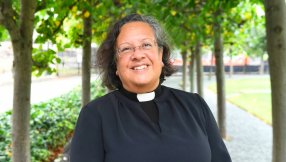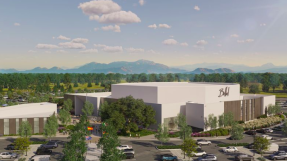
When a new group calling for 'a Church that fully embraces everyone and anyone, giving a warm and sincere welcome to all' is launched, what's not to like?
In these days of partisanship and division, shouldn't we all be getting behind such an initiative? And how could anyone apart from the most querulous and unreasonable sort of person have any concerns at all? Sad to say, though, that a closer look at this new coalition – which is called 'Mosaic' – brings with it significant questions and worries.
Mosaic stands for 'Movement of Supporting Anglicans for an Inclusive Church' – as opposed to anything to do with Moses, who might well raise an eyebrow at one or two of the things it claims to represent. According to its own press release, 'the movement aims to have a presence in each diocese of the Church of England, where it will work with local clergy and laity on projects that promote inclusion for all those who are currently marginalised by the Church of England – whether that be due to race, ability, sexuality, gender or gender identity'.
So why would anyone possibly have any argument with that? Well, here are a couple of things that certainly came to my mind as I read through the full text of that release.
1. It claims to be inclusive – but isn't it in fact exclusive?
Canon Tim Goode, co-chair of the new group and member of the Archbishops' Council, says: 'I am delighted that we have been able to bring together such a broad coalition of leaders who represent the full range of marginalised groups within the Church of England.' Did you clock that? This is not just some marginalised groups within the C of E, but – get this – 'the full range' of such groups, in toto.
So if you are not among those designated 'marginalised' by this definitive pronouncement, you might think or even feel you are marginalised – but you need to be clear: you're wrong! Poor old you, how could you be so deluded? For Mosaic represents 'the full range' of marginalised groups – so tough luck to you if you mistakenly think you might also be counted as such.
No space, then, for the very definitely marginalised conservative evangelicals who, promised 'mutual flourishing' by the Church of England, are still wondering when any regular diocesan or suffragan bishop who teaches their theology is ever going to be appointed. No, I am afraid you are not the right sort of 'marginalised' Christian to count with Mosaic.
And no space, then, for any of the leaders of Living Out, the group of same-sex attracted Christians who actually not only teach but live out the traditional teaching of the worldwide holy catholic church when it comes to matters of sex and sexuality. No, I'm afraid you're just the wrong sort of gay person and should you feel marginalised at all in current debates, then I'm sorry to say that's because you're clearly mistaken and obviously not worthy of inclusion.
2. It claims to represent the marginalised – but isn't its leadership hierarchical and elitist?
Let's just run our eyes down the Steering Group here... So far as I can see, having looked at their pictures and checked their available online biographies, they are all ordained, and all white (though one was born in Canada and one in Germany). It is true that one of the eight patrons (seven of whom are also ordained) is from an ethnic minority group, but of course it is the steering group who in practice will run things.
Remember, folks, these are the 'leaders who represent the full range of marginalised groups,' according to the group's own co-chair, including those marginalised due to race. If you are a black or ethnic minority Christian in the Church of England, these are your new leaders. I hope you got the memo telling you – or perhaps you forgot to vote in whatever election was held to choose these 'leaders'? Oh, hang on a sec... They're self-appointed, of course!
If you're thinking that this smacks faintly of a slightly colonial attitude then you are a very naughty person and should stop thinking such things at once. And if you're not ordained, perchance, then remember that you're not qualified to be a proper leader as that can only done by people with important titles such as 'Ven', 'Rev' or 'Canon'.
Interestingly, on the 'Thinking Anglicans' website, Mosaic co-chair Trevor Wyatt himself admits that he 'wants to see more BAME representation' and appeals for anyone interested to e-mail him. This in response to an ethnic minority Christian who wrote: 'No BAME person seems to be included in the initial core discussions or leadership group. As a BAME person I find this unacceptable and for far too long we have white middle class clergy / laity seeking to represent BAME concerns.' Just possibly Mosaic might have thought about this a little earlier on, maybe?
Let us compare and contrast Mosaic, just briefly, with recent actions of the Church of England Evangelical Council (CEEC). The CEEC video 'The Beautiful Story' on same-sex issues, for example, was fronted by a BAME person, as well as featuring members of Living Out. Tick – more inclusive than Mosaic. And let us have a look at 'ONE,' the CEEC video on race, which included contributors with a wide range of ethnic diversity. Tick – more inclusive than Mosaic.
Perhaps some of Mosaic's steering group could phone them up and see if they'd like to join in with their gang... But I think we can all guess what the answer will be...
And that, of course, is the thing about being genuinely inclusive. If you're going to talk the talk, you need to walk the walk.
At the moment, Mosaic looks less like an embodiment of the cause of genuine diversity, and more like an embarrassment to it.
David Baker is a Church of England minister, Contributing Editor at Christian Today, and Senior Editor of Evangelicals Now.













